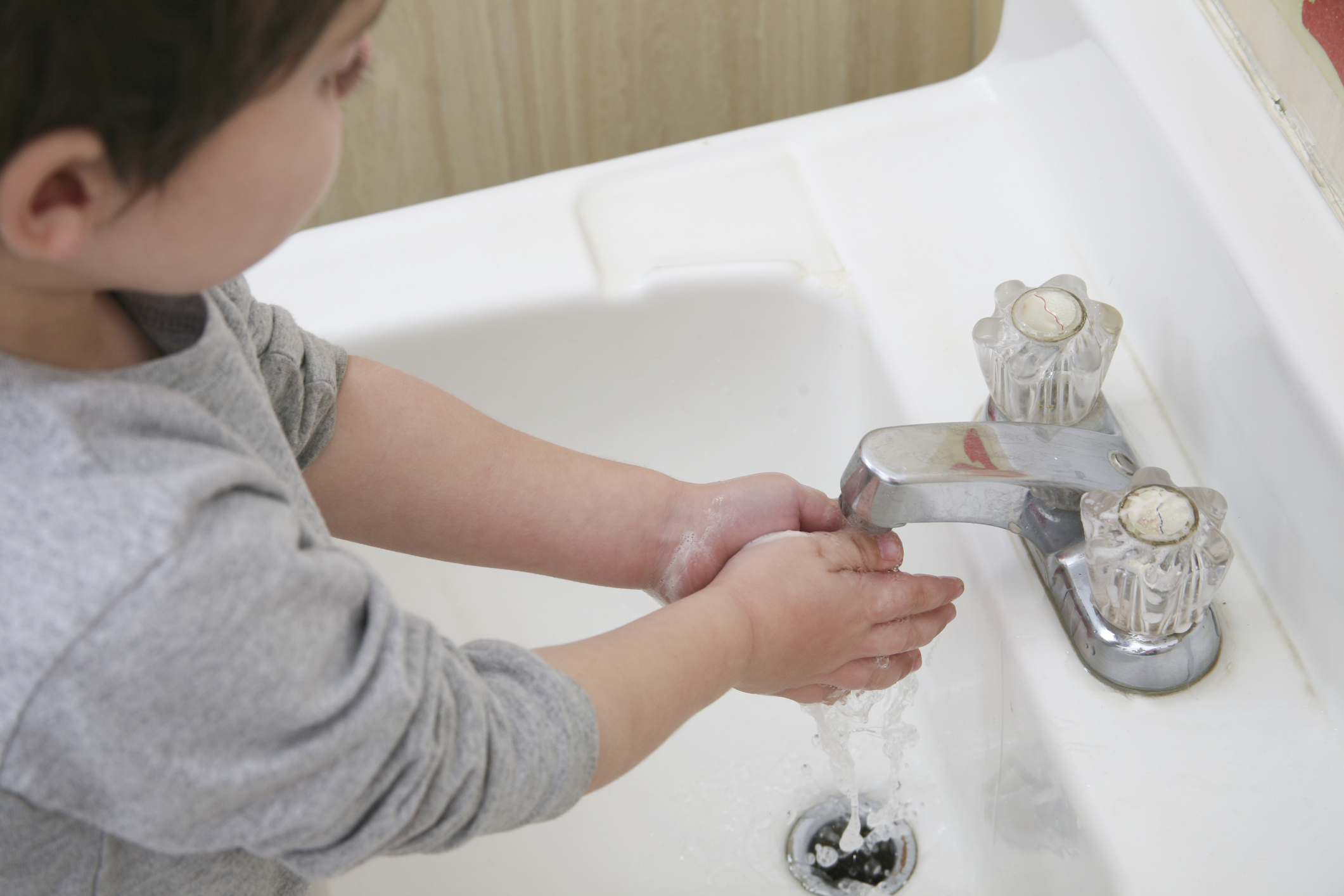
We all know that when school starts, so can the runny noses and coughs. Missed school days are most commonly due to infections such as the common cold and the flu, but there are ways to help prevent your child from getting sick. Here is a list of tips to keep your children healthy so that they can avoid those miserable sick days at home!
How can I protect my child from getting sick during the school year?
One of the most important and effective things you can do is VACCINATE your child. Vaccines have dramatically decreased the number and types of infections that children get, and are the best way to prevent your child from picking up an infection at school. Unfortunately, we are still seeing outbreaks due to infections such as measles and whooping cough as a result of children not getting vaccinated. Make sure you discuss with your pediatrician which vaccines your child needs. Also check out the CDC vaccine quiz (https://www2a.cdc.gov/vaccines/childquiz/.
Another important activity you and your children can do is to keep hands clean and prevent the spread of bacteria and viruses through HANDWASHING.
Handwashing – the WHO, WHAT, WHEN, WHERE, WHY, and HOW
WHO should wash their hands?
Everyone! It’s easy to do and will work best if everyone does it.
WHAT should I wash?
ALL surfaces of the hands – this includes the front AND back of the hands, between the fingers, and under the nails.
WHEN should I wash my hands?
Important times to wash hands are after using the bathroom, before eating food, and after coughing or sneezing. Another great opportunity to keep hands clean is after touching the subway poles on the way to and from school using an alcohol-based sanitizer.
WHERE should I wash my hands?
Use a sink with running water (warm or cold) at home and at school. Make sure your child’s school offers opportunities for handwashing during the day.
WHY is handwashing so important?
Handwashing is an effective way to prevent the spread of infections. Many infections are spread from person to person through their hands. Germs can get onto the hands after using the bathroom, coughing or sneezing into the hands, or even after touching a contaminated object (including touching someone else’s dirty hand)!
HOW do I wash my hands effectively?
Follow these simple steps to effectively remove germs from your hands:
Wet → lather → scrub → rinse → dry
Wet hands with water, apply soap and lather, scrub hands for 20 seconds, rinse soap off with water, dry with a clean paper towel, and use the paper towel to turn off the faucet.
If soap and water are not available or if there is no visible soiling of the hands, clean your hands using an alcohol-based sanitizer that contains 60-90% alcohol.
What else can my child and I do to keep from getting sick?
- Keep hands away from the nose, mouth, and eyes – these are places where germs can enter your body and make you sick.
- Avoid nail-biting.
- Cover your cough!
- Cough or sneeze into a tissue or bent arm (the inner part of the elbow).
- If using a tissue, throw the tissue away into a garbage can and wash hands afterwards.
- Sharing is caring…except when you share germs!
- Don’t let your child share items such as water bottles, cups, “chap stick,” face makeup, or lotions with other children in school.
How do I protect my child from the flu?
VACCINATE! The best way to protect your child and your family from flu is for the whole family to get the flu vaccine every year as soon as the vaccine becomes available, usually in August or September. This is especially important for young children who are at higher risk of getting very sick from the flu. The vaccine is recommended for all children 6 months and older (unless there is a specific contraindication).
Flu season can last most of the school year (October to May), so make sure to wash hands often and cover your coughs and sneezes throughout the whole school year. And if you forgot to vaccinate your child at the beginning of the flu vaccine, it’s not too late to vaccinate! Bring your child to your pediatrician at any time during the flu season to get vaccinated.
When should my child stay home from school?
Keep your child home if he/she develops fever, diarrhea, vomiting, or pink eye. For most illnesses, you should keep your child at home for at least 24 hours after symptoms have gone away. If your child develops the flu, he or she may have to stay home longer if the symptoms are severe, so discuss with your child’s pediatrician before they return to school.
Do I have to worry about my child getting lice at school?
While head lice is a nuisance, it does not spread disease and it is not dangerous. Lice is most commonly spread from head-to-head contact between children and less frequently from sharing clothing or hair brushes. Head lice is not a reason to keep a child home or send a child home early. They can go home at the end of the school day, get treated at home, and return to school after appropriate treatment has been given. Make sure your child doesn’t share items that could spread lice such as hats, combs, and hairbrushes. If your child develops head lice, discuss treatment options with your school nurse or pediatrician.
References
Aronson SS , Shope TR , eds. Managing Infectious Diseases in Child Care and Schools, 4th Edition: A Quick Reference Guide. Elk Grove Village, IL: American Academy of Pediatrics; 2016.
Centers for Disease Control and Prevention. Handwashing. https://www.cdc.gov/handwashing/when-how-handwashing.html. August 1, 2018.
Centers for Disease Control and Prevention. National Center for Immunization and Respiratory Diseases. Influenza (Flu). https://www.cdc.gov/flu/. August 1, 2018.
Devore CD , Schutze GE ; American Academy of Pediatrics, Committee on School Health and Committee on Infectious Diseases. Clinical report: head lice. Pediatrics. 2015;135(5):e1355-e1365
About Dr. Acker

Dr. Karen Acker is assistant professor of clinical pediatrics at Weill Cornell Medicine and assistant attending pediatrician at NewYork-Presbyterian Komansky Children's Hospital/Weill Cornell Medical Center in the Division of Pediatric Infectious Diseases.

